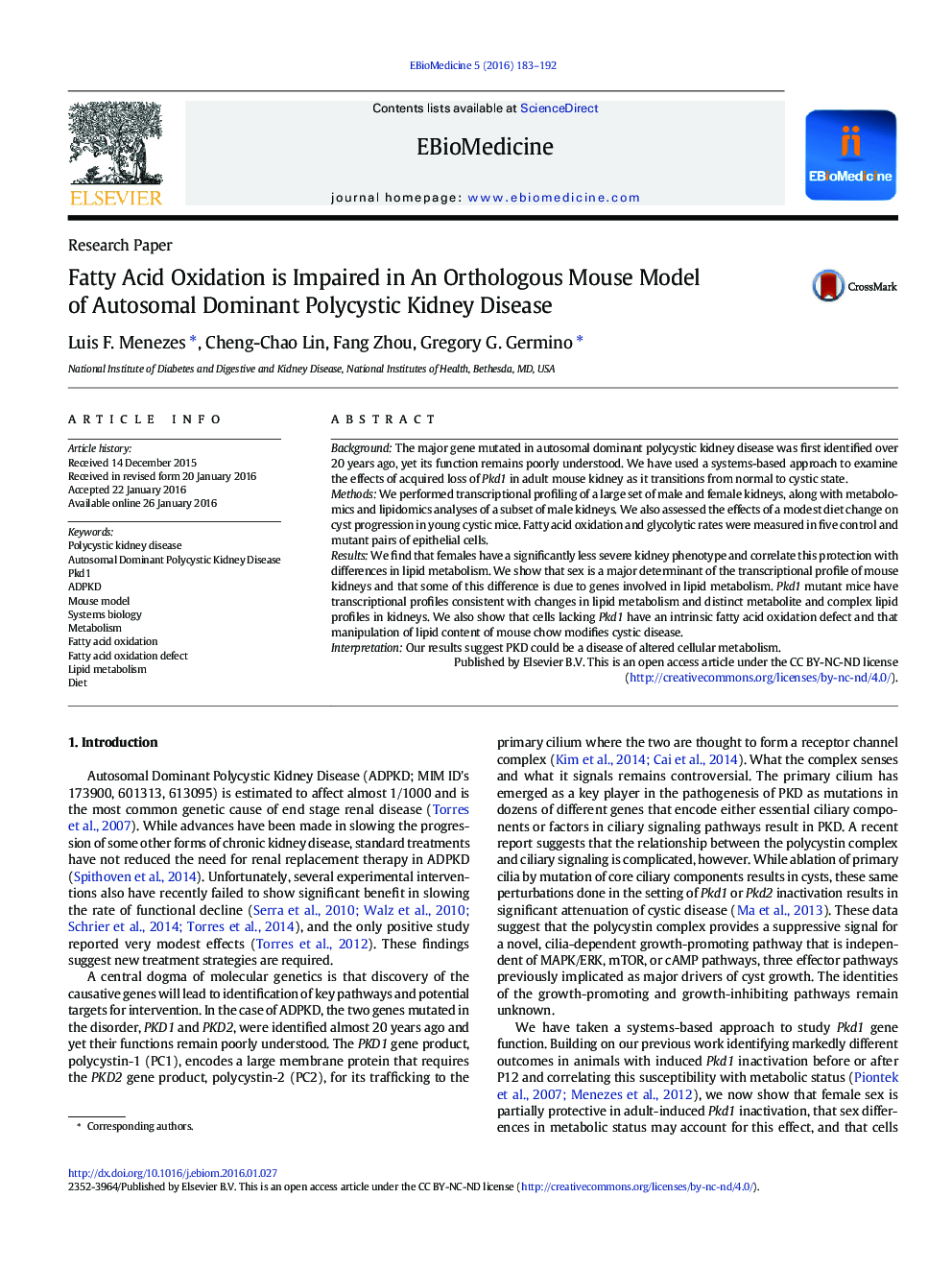| Article ID | Journal | Published Year | Pages | File Type |
|---|---|---|---|---|
| 2120960 | EBioMedicine | 2016 | 10 Pages |
•Adult female mice have slower kidney disease progression than males in an orthologous Pkd1 model of ADPKD.•Omics and in vitro studies suggest Pkd1 deletion causes cell autonomous metabolic changes and fatty acid oxidation impairment.•Transcriptional sexual dimorphism in mouse kidneys is consistent with lipid metabolism modifying PKD progression in females.•Lower lipid content in diet correlates with slower PKD progression.Autosomal Dominant Polycystic Kidney Disease (ADPKD) is caused by mutations in PKD1 or PKD2 and characterized by the replacement of kidney parenchyma by cysts. Recent studies have identified metabolic differences and increased glycolysis in ADPKD. We now examine the effects of acquired loss of Pkd1 in adult mouse kidney as it transitions from normal to cystic state. We report females have less severe kidney disease and suggest metabolic differences could underlie this protection. Notably, we did not find altered glycolysis, but rather that Pkd1- cells have impaired fatty acid oxidation. We also showed that reducing the fat content in mouse diet correlated with less severe cystic kidney disease. Our results thus support the notion that abnormalities in lipid metabolism are an intrinsic component of ADPKD.
BackgroundThe major gene mutated in autosomal dominant polycystic kidney disease was first identified over 20 years ago, yet its function remains poorly understood. We have used a systems-based approach to examine the effects of acquired loss of Pkd1 in adult mouse kidney as it transitions from normal to cystic state.MethodsWe performed transcriptional profiling of a large set of male and female kidneys, along with metabolomics and lipidomics analyses of a subset of male kidneys. We also assessed the effects of a modest diet change on cyst progression in young cystic mice. Fatty acid oxidation and glycolytic rates were measured in five control and mutant pairs of epithelial cells.ResultsWe find that females have a significantly less severe kidney phenotype and correlate this protection with differences in lipid metabolism. We show that sex is a major determinant of the transcriptional profile of mouse kidneys and that some of this difference is due to genes involved in lipid metabolism. Pkd1 mutant mice have transcriptional profiles consistent with changes in lipid metabolism and distinct metabolite and complex lipid profiles in kidneys. We also show that cells lacking Pkd1 have an intrinsic fatty acid oxidation defect and that manipulation of lipid content of mouse chow modifies cystic disease.InterpretationOur results suggest PKD could be a disease of altered cellular metabolism.
